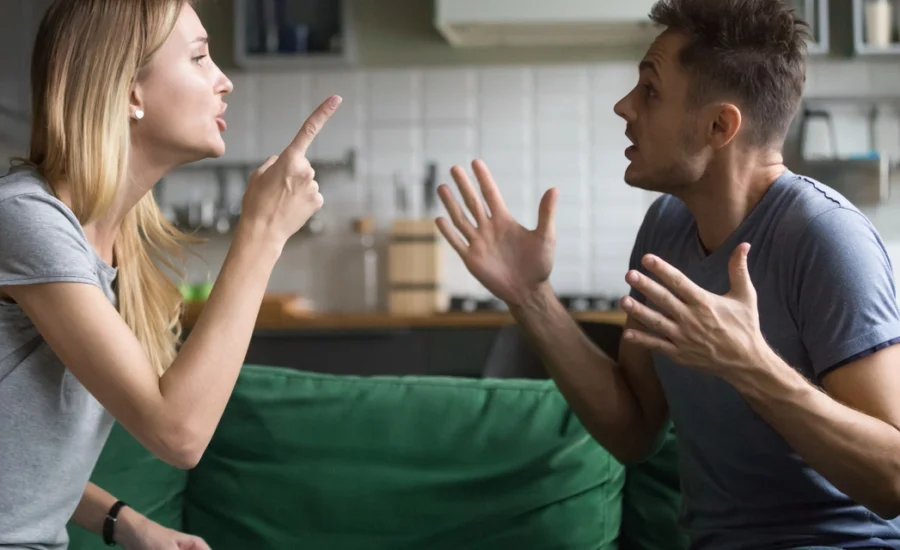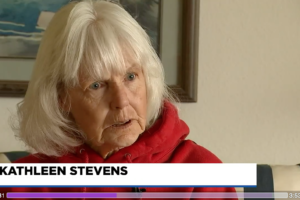By Stephanie Thurrott
Mutual abuse—a term to describe two partners are mutually abusive against each other—is rare and seldom exists in cases of domestic violence. With domestic violence, one partner aims to exert power over the other through a pattern of repeated control and sometimes violence. If the survivor responds to the aggressor with an emotional reaction, it’s not mutual. Abuse is not a shared responsibility.
To say partners are mutually abusive puts undue blame on the survivor and reinforces the belief that the abuse is the survivor’s fault. The mutual abuse myth also supports the abuser’s behavior—when both people are to blame, it can justify their actions.
Violent Resistance or Self-Defense Is Not Mutual Abuse
If you think you might be in a mutually abusive relationship, ask yourself what you were hoping to accomplish when you used violence with your partner. “If you tease out the underlying motivations, you start to see it’s really not mutual abuse,” says Mindy Mechanic, Ph.D., a clinical psychologist and professor of psychology at California State University Fullerton who focuses on interpersonal violence.
Domestic violence survivors might be assaultive, but that’s not mutual abuse. That’s reactionary abuse. “They don’t want power and control. They want the power and control to stop,” says David Cropp, a retired sergeant with the Sacramento police and an expert witness consultant for domestic violence.
What might be perceived as mutual violence is often violent resistance—that’s violence in response to violence, not violence used to control a partner. “They don’t initiate the violence, and they don’t use it with the motivation of limiting agency or controlling a partner,” Mechanic says. “They’re using it either defensively or preemptively. But it can look on the surface like mutual abuse if you’re not looking at who’s initiating and who’s in control.”
Self-defense is also not mutual abuse. Some survivors think they are in a mutually abusive relationship, especially if their partner, family, friends, or law enforcement push them to feel that way. But if you’re not the one starting the fight, it’s not mutual abuse. “If you’re fighting against someone who has their hand around your neck, then you’re just trying to save your life,” says Mechanic.
Why Law Enforcement May Suspect Mutual Abuse
When police respond to a domestic violence call, they may have no way to know who the aggressor is. They are acting on limited information, and they may need to follow mandatory arrest laws. If both people are injured and both admit to violence against the other person, it can look like mutual abuse.
“It can be hard for [law enforcement] to sort out the chain of events,” says Sherry Hamby, Ph.D., editor of Psychology of Violence, the scientific journal of the American Psychological Association. “What sometimes ends up happening is that they might arrest both parties even though one party was acting entirely in self-defense.”
When police respond to an incident, they’re focused on the incident. “They’re failing to look at all that came before it, which is the environment that victims live in,” Cropp says.
An environment of threats, isolation, intimidation, minimizing the abuse, coercion or economic abuse puts one person as the dominant aggressor over the other, even when physical abuse isn’t involved.
Cropp says he sees scenarios where female victims are terrorized emotionally by demeaning, degrading comments to the point where they start crying and screaming. “They just want the abuse to stop,” he says. At that point, the aggressor starts recording her with their cell phone. When they show the police that video, she looks violent and crazy.
How You Can Help Police Identify the Aggressor
It’s the responsibility of law enforcement—not the responsibility of a survivor—to properly evaluate a domestic violence situation. But unfortunately, not all officers are trained in assessing aggression. “We need to do a much better job of training police,” Mechanic says.
In the meantime, there are a few things you can do to help police evaluate your situation so they can uncover the truth:
- Understand you have a right to speak out.
- Try to stay as calm as possible—practice deep breathing or grounding techniques.
- If you’ve documented your history of abuse with written notes and photos, share them with the police.
- Choose your words carefully. “A lot of [people] frame what happened in very normalized terms,” Dr. Mechanic says. “For example, they will say, ‘We had a fight,’ when they were punched or strangled. ‘We had a fight’ doesn’t place ownership where it belongs. It’s an act of abuse or violence perpetrated against them.”
- Explain that you are reacting to emotional or physical abuse. Pointing out that you are reacting, not initiating the abuse, is important.
- Put your relationship in a broader context—explain what happened before police arrived and what it’s like to live in your environment. Tell the police if your partner is jealous, controlling or suicidal. (Threats of suicide can be a strategy for gaining power and control.)
- Take notes after the fact when your memory becomes clearer and contact an officer or detective to share additional details. “You can say something like, ‘I was upset at the time, but I’ve had some clarification, and I’d like to add that to the report,” Cropp says. Unfortunately, at the time of the incident, if you can’t tell your story linearly, some officers will perceive you as being not trustworthy. “In reality, the victims who are most dysregulated are going to be scattered. They’re not going to remember. That tells me they’re under emotional trauma, and that’s the kind of person we need to be believing more.”
- Contact the district attorney’s office so they know you want to cooperate with the prosecution.
What Is Mutual Abuse?
Mechanic explains that a type of mutual abuse exists. It’s often called situational couple violence. But it isn’t part of domestic violence. It happens between people who have poor conflict resolution skills and don’t know how to communicate. So, when they are talking about things like whether to go on vacation or buy a car, they may engage in mutual, low-level violence. “It’s generated by a situation that people can’t resolve in some other way,” Mechanic says. Unlike domestic violence, it’s not driven by the need to exert power and control over another person.
Remember, defending yourself against abuse or reacting to it does not make you an abuser, even if an abusive partner tries to convince you otherwise. Read, “Trauma-Related Guilt is a Liar” to learn more.




